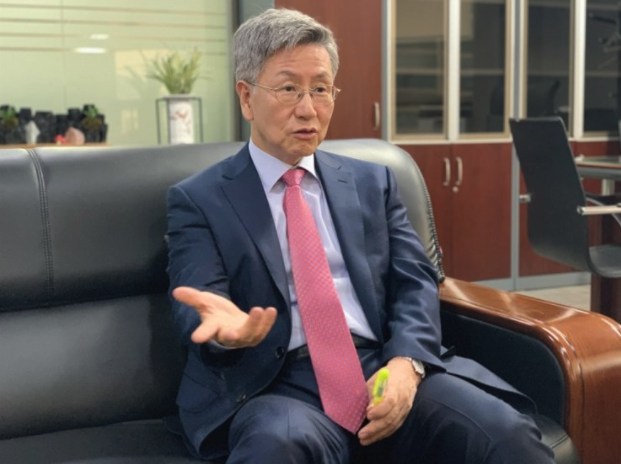Identity Review | Global Tech Think Tank
Keep up with the digital identity landscape.
South Korea expedites the adoption of digital identification through a series of new rollouts and unification measures.
As the worldwide economy suffers and businesses slow down, COVID-19 is expected to accelerate the trend of more services going online, requiring a robust system for digital identity. In fact, Goode Intelligence Research released a modified prediction that increases digital identity verification checks in 2020 by 15- 20%.
In line with a series of identity initiatives released last year by the South Korean government, including a DID Alliance, various groups are moving forward with establishing new processes for digital identity. By the end of 2020, South Korea aims to upgrade security systems and provide various digital certificates so financial firms, such as insurers and credit card companies can improve identity verification procedures for their customers.
The South Korea Ministry of Land, Infrastructure and Transport announced that as of March 20th, airline passengers may use digital identity through a government app for plane boarding on domestic flights. With new verification certificates coming, airplane passengers will soon also have the option to board facilitated by mobile driver licenses. Secure blockchain-based mobile authentication reduces the risk of identity theft as physical IDs reveal personal information such as address and resident registration number.
Last year, Nonghyup Bank introduced a blockchain-based mobile ID system developed within a powerful decentralized identity tech consortium. On March 12 of this year, mobile vendor Samsung Electronics received South Korea government approval to launch a mobile driver license service on the Samsung PASS app, expected to launch later this year. With around 30% of the mobile vendor market share, Samsung’s entry into digital identity is a bold move for the mobile landscape.
Over the last few years, South Korea has been the victim of many malicious cyberhacks, including denial-of-service (DDoS) attacks to ransomware, malware and zombie PCs. The investment into blockchain-based systems and decentralized IDs have come about as consumers demanded protection over their personal data, with the novel technology reducing risk of identity theft and improving security systems. An immutable ledger streamlines digital identification as blockchain networks enable individuals to identify themselves and control their personal information. This means that personal data would be managed and controlled by individuals, not centralized institutions known for their high vulnerability with little accountability. Notably, in a 2011 hack by North Korea, Nonghyup Bank customers were unable to withdraw or transfer funds, creating a national conversation around the state of security and personal data. In 2014, 20 million South Koreans had their personal information stolen from several prominent sources.
A decentralized ID system has several benefits from the interoperability of data allowing for a secure system that handles consumer information, as well as the ability for cross-border efficiencies. Many services would benefit from the streamlining of digital identity, including immigration, healthcare, financial services and education.
This vision for a self-sovereign identity removes the need for existing identity certification processes which require the help of intermediaries that manage sensitive data including government-certified or public entities. An individual will be able to securely store personal information through their digital identity, including resident registration numbers, home address, bank account numbers and more, and use them whenever the need arises.
South Korea has put a considerable effort towards igniting critical conversations and unifying the space, with many prominent companies onboard and driving the top-down initiatives, including Nonghyup Bank, Samsung, LG, Hana Financial Group and more. The use of blockchain provides a decentralized system which can be used for in many industries and between separate organizations. Indeed, 30 banks, securities firms, insurers, electronics manufacturers, and public institutions have signed up. It’s expected that the conversation will continue to broaden towards unifying the larger ecosystem and at some point also include universities, hospitals, insurers, entertainment facilities and more.
Decentralized Identity Alliance Korea is an open industry association created to develop a standardized, interoperable framework for decentralized identity services. This unification will enable Korea to have a greater say in setting global DID standards, facilitating the global expansion of not only local companies but also domestic technologies.
DID Alliance Korea Chairman Kim Yeong-rin shares, “Korea needs to lead the global discussion on the decentralized ID fully backed by its competitive IT technologies, prompting other nations to follow our lead in the development and implementation of the necessary systems.”

DID Alliance Korea Chairman Kim Yeong-rin (Photo Courtesy of DID Alliance Korea)
These unified initiatives have fostered the environment for Nonghyup Bank, in conjunction with SK Telecom, to release a blockchain employee ID system, tightening security around personal data. Among one of the first commercial applications of distributed identity technology, this allows employees at Nonghyup Bank to have direct control over their personal information. Reportedly, the mobile ID system will be used at first for commuting and office building entry access, and later will expand to payments. This mobile employee ID initiative is backed by several South Korean businesses, such as Samsung, Hana Financial Group and LG.
DIDs are designed to be interoperable between service providers. Once a trusted institution authenticates a DID, it is stored immutably and can be shared for other applications, streamlining the process for the entire ecosystem. Thus, the backing and buy-in of these conglomerates is key for widespread adoption of the system. Eventually, this kind of support will be necessary to reach consumers in mass, and to be adopted into the greater tech ecosystem.
At the end of last year, Korea Financial Telecommunications and Clearings Institute (KTFC) announced the launch of blockchain-based digital IDs for financial services, streamlining new account creation and loan applications. With decentralized identities, customers can quickly complete an application from their mobile phone, never having to visit an office. To achieve widespread functionality, the system has been built in line with global standards from the World Wide Web Consortium (W3C) and domestic regulations. Furthermore, the IDs will be self-sovereign, in that they are generated and controlled by the consumer.